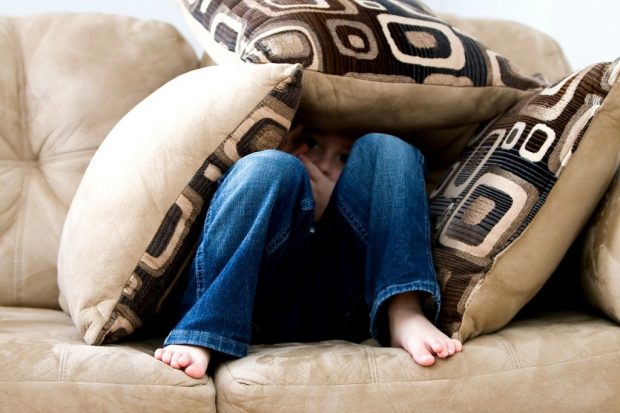 School Phobia/ refusal is itself a symptom of anxiety disorder in childhood. It is also known as separation anxiety, which is a child’s inappropriate fear of leaving their parents, a person, a place of trust or home.
School Phobia/ refusal is itself a symptom of anxiety disorder in childhood. It is also known as separation anxiety, which is a child’s inappropriate fear of leaving their parents, a person, a place of trust or home.
Most children find going to school exciting and enjoyable, although of course, nearly all children have times when they don’t want to go. This happens commonly at ages where children are faced with tougher school activities or exams or may have fallen out with friends. All of this is a normal part of growing up.
Children who develop school phobia, however, become terrified, trying every avoidance tactic in order to stay at home.
Parents should be aware if their child regularly says that they are too sick to go to school, they could be doing so in order to avoid anxious feelings.
School phobia can present itself in a number of ways:
-Constant thoughts and fears about safety of self and parents
-Refusing to go to school

-Frequent stomach aches and other physical complaints
-Extreme worries about sleeping away from home
-Overly clingy
-Panic or tantrums at times of separation from parents
-Feeling unsafe staying in a room by themselves
-Displaying excessive worry and fear about parents or about harm to themselves.Shadowing the mother or father around the house
-Exaggerated, unrealistic fears of animals, monster, burglars
-Fear of being alone in the dark

What causes school refusal
-Bullying
-Transition from primary to middle or high school
-Change of school at the beginning or middle of year
-Separation anxiety: the child experiences overwhelming feelings of distress when parting from their parents or family home. This could be caused from the child being over-reliant on their parents, or having negative memories of when they were separated from them in the past.
-Anxiety about a parent leaving or losing a parent: the child may be fearful that something bad will happen to their parents while they are at school such as:
– parents divorcing or running away
– having friends whose parents have separated and fearing that it may happen to theirs
– fear of a parent becoming ill again after recovering from prior illness
-Family stress
-Academic pressure or problems
-Problems with teachers
-Social anxiety or fear of not having friends
-Moving house
-Change in parent’s job or experiencing change in home life

What parents should not do
The way you respond to your child’s school refusal can make things worse. After all, you’re your child’s biggest ally. If your child feels they cannot count on you, they may feel even more anxious. Avoid the following:
-Telling your child’s friends or peers about their school anxiety.
-Shaming or punishing your child for not going to school.
-Threatening your child for not going to school.
-Making fun of your child, or allowing siblings to make fun of your child, for not going to school.
-Assuming the issue will work out on its own.
-Children who refuse school need help, and a few sessions with a counselor are often all it takes to get things back on track.

Nutrition for the Anxious Child
It is important if your child is anxious to watch their sugar intake. Anxiety makes the adrenals work as it causes over production of both cortisol and adrenaline amongst other hormones. The adrenal glands also have to work hard with a diet high in sugar so frequent sources of protein in snacks/meals is important such as nuts and seeds, humous with carrot sticks, eggs, meat and fish. This balances the blood sugar and takes the load off those adrenal glands.
There are certain supplements that will help support your child’s system and ensure they have the best resources available to help them cope:
• Multi B vitamin: B vitamins are very important for the nervous system so adequate intake is essential
• Magnesium is important for many systems in the body but will also help your child be calm at night for restful sleep
• Vitamin C daily: Vitamin C supports the adrenal glands and as they work extra hard in times of anxiety this is key.
Homoeopathy approach
Anxiety disorders are treatable in homeopathy. The treatment is based on a complete evaluation of the child/adolescent’s symptom pattern and intensity of symptoms.
For homeopathy, every case is an individual case and the medicine is decided on these individual symptoms.
Causative factors are more important than the symptoms. If they are identified clearly and the prescription is based on it, this can lead to a faster clearance of the disorder.




